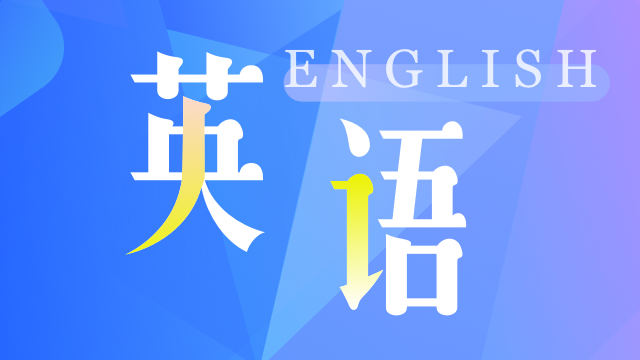解析检验美高中生英文水平的100词
recognize 可以拆分为 re-, co-, gn, -ize,其中的词根 gn 意思就是 know,二者也是同源词根,涉及 g-k 音变。
kno(w), gn(o), no(t) 知道
印欧词根形式为*gno-
26. incognito/ˏɪŋkɔgˈniːtəu/(来自意大利语,in-不,co-与,gn知道,-it(o)相当于形容词后缀-ite,-o 是意大利语形容词后缀,另一种拆分是:gni 知道,相当于gno,-t = -tus 拉丁过去分词后缀;字面意思 unknown 未知的;未被认识的;使别人对自己未知的→)
ad. in a way that prevents other people from finding out who you are 隐姓埋名地;微服私行地,伪装
a. 隐姓埋名的;微服私行的 ;伪装的
Movie stars often prefer to travel incognito.
no, not 如果仅是一个单词中的2个、3个字母,它们可能与“不”毫无关系了:
note/nəut; not/(no=gno, t 可能是古拉丁语 gnoscere ‘to know’过去分词变化产生的,not 知道,-e 后缀;为使知道而作一些记号、记录等→)
n. 1. 短笺,便条;2. 记录,笔记;3. 注解,按语;4. 音调,音符;5. 票据,钞票
vt. 1. 注意,留意;2. 记录,记下
27. notary/ˈnəutərɪ/(not=note记录,-ary 从事…的人,与…有关的人)
n.someone, especially a lawyer, who has the legal power to make a signed statement or document official 公证人,公证员(尤指律师)
She is the town clerk and a certified public accountant and notary public.
贝娄娜即 Bellona 是罗马神话里的战争女神;rebel 指再次发动战争的人即“反叛分子,反对者”,词根:
bell 战争
28. antebellum/ˌæn.tɪˈbel.əm/(ante- 在…前,bell→拉丁语 bellum战争,-um 拉丁语中性名词词尾)
a. relating to the time before a war, especially the American Civil War 战前岁月的;(尤指)美国内战前的
Many homes and churches of the antebellum South can still be visited today.
29. bellicose/ˈbelɪkəus/(bell战争,-ic形容词后缀,bellic属于战争的,-ose喜爱…的,充满…的,…状的;喜欢战争的→)
a. (formal) having or showing a desire to argue or fight 好争辩的;好斗的;好战的
The government is continuing its bellicose statements threatening tough action against illegal strikes.
柏拉图(Plato,约公元前427年-前347年),古希腊哲学家,对欧洲哲学产生过极大的影响。他的老师是苏格拉底。他所设立的一所学园就是现在的Academy的来源。柏拉图原名 Aristocles(意为the best glory),但因自幼身体强壮,胸宽肩阔,就被叫做 Plato,意思是Broad-shouldered 。
place 这个词的本来意思是一个“宽”阔的区域,理解了place,plagiarize 就容易了。
拉丁语的 plaga 意思为:
1. 地带,区,区域;
2. (pl.)网,捕兽网,猎捕网;
3. 罗网,圈套,阴谋,奸计
词根:plac, plag, pla 平,伸展,宽
印欧词根为 *p(e)la-,*pla-,*plak-.
plagiary/ˈpleidʒiəri/(plag 平,伸展→plagi(um) 伸展的网,陷阱,来自拉丁语 plaga,-ary 名词后缀,表示与…有关的人;与…有关的事;利用网、陷阱或圈套掠夺、拐骗、绑架的人或事→)
n. 1.=plagiarism 2. 剽窃者
plagiarism/ˈpleɪdʒərɪzəm/(见上,-ism 行为,行动,结果,特征,特性)
n. 抄袭;剽窃;剽窃作品
30. plagiarize, plagiarise/ˈpleɪdʒəraɪz; ˋpledʒəˏraɪz/(plagiar(ism) 抄袭;剽窃 + -ize 以…方式对待,按一定的方式行事)
v. (disapproving) to copy another person's ideas, words or work and pretend that they are your own 剽窃; 抄袭
He accused other scientists of plagiarizing his research.
The book contains numerous plagiarized passages.
If you compare the two books side by side, it is clear that the author of the second has plagiarized (from the first).
所谓 plastic “塑料”其实就是被“塑造”即“可用模子做的东西”,这样的 plas 与 plasma的 plas 属于同源。
希腊语plassein的意思为:
1. 铸造,塑制,塑造
2. 制造
31. plasma/ˈplæzmə; ˋplæzmə/(pla伸展,平→带后缀的形式plas伸展开、铺平用模子做→铸造,塑制,制造,-ma名词后缀;从其可以制造出血液的东西即血中的液体部分→)
n. 1. the yellowish liquid part of blood that contains the blood cells 血浆
2. a gas that contains about the same numbers of positive and negative electric charges and is found in the sun and most stars 等离子体(又叫做电浆,是由部分电子被剥夺后的原子及原子被电离后产生的正负电子组成的离子化气体状物质)
plasmo-, plasm-, -plasm 表示:
浆,血浆,原生质
希腊语的 plasma指:
1. 铸造或塑制的东西:蜡像,泥塑;
2. 仿制品,赝品
quantity 是“量,数量”,其中的词根qua就是“多少,什么”。
quasi- / ˈkweɪzaɪ-, ˈkweɪsaɪ; ˋkwezaɪ, ˋkwesaɪ/(quasi=quam + si ,qua 多少,什么→quam怎样,多么,si 假如,如果,倘若,与so同源,quam-si 就是as if 如果怎样→像…,类似→)
作为前缀,表示:类似; 准; 半
人名埃斯特拉即Estella 是Stella 斯特拉的变化形式,Stella意为“星”。
最简单的“星”是star , “变身”astr 也是“星”。
印欧词根形式为*ster-,stell 其实是 ster 带后缀的形式
Klein 认为这些词根可能都来自最初的*astero, AHDOIER (The American Heritage Dictionary of Indo-European Roots )里的 basic form *Ester
star, ster, ast(e)r 星
stellar/ ˈstelə(r); ˋstɛlɚ/(ster带后缀的形式stell 星,-ar …的)
a. 1. 星的,恒星的
2. (infml)优秀的,精彩的,杰出的
知道了quasi 和 stellar,quasar 的问题就简单了:
ˈkweɪzɑː(r); ˋkwezɑr/(来自quasi- + stellar ,quas(i-stell)ar (radio source))
n. (astronomy) a large object like a star, that is far away and that shines very brightly and occasionally sends out strong radio signals 类星体;类星体射电源
quote, quotation, quota 里的quo也是“多少,什么”,而 diary, dial 里的词根 di “日,天”,知道这两个词根,quotidian就好理解了:
quote/kwəut; kwot/(quo→带后缀的形式quot什么,-e后缀;用的什么、从什么地方来的→)
v. 引用,援引
n. 1. 引文,引语;2. 报价,牌价;3. [pl.]引号
quota/ˈkwəutə; ˋkwotə/(quo → 带后缀的形式 quot 多少,-a 拉丁阴性词尾,是拉丁语 quota pars 即 how large a part 的缩略式;多大的一份→)
n. 定额,限额,配额
33. quotidian/kwəʊˈtɪd.i.ən/ US /kwoʊ-/(quo →带后缀的形式 quoti 多少,所谓日记 diary 中的 di 就是“日,天”,-an 形容词后缀;多少?每日、每天的→ )
a. (formal) ordinary; typical of what happens every day 寻常的;普通的,司空见惯的;每天发生的
Television has become part of our quotidian existence.











